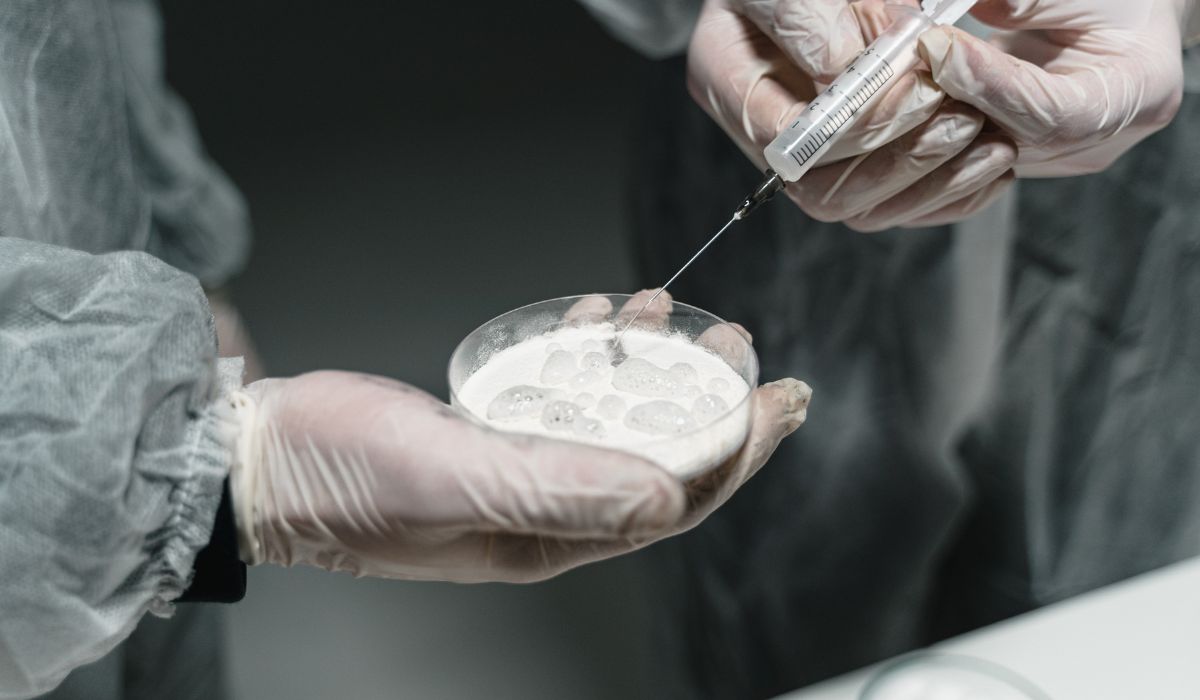Can a Laboratory Test Urine for Norfentanyl?
Drug testing is an important part of health, recovery, and safety. One question that often comes up is: can a laboratory test urine for norfentanyl? The answer is yes. Labs can test for norfentanyl, which is a metabolite of fentanyl, using advanced toxicology methods. At Lynk Diagnostics, we provide urine drug testing to support rehab facilities and patients seeking help with substance abuse.
In this article, we will break down what norfentanyl is, how laboratories detect it in urine, why testing matters, and what the results mean for patients, addiction treatment, and mental health.
What Is Norfentanyl?
Norfentanyl is the main metabolite of fentanyl, a powerful opioid used in medicine for pain control. When someone takes fentanyl, the body breaks it down through metabolism in the liver. One of the byproducts is norfentanyl.
Because norfentanyl stays in the body longer than fentanyl, it is often the target in urine drug testing. Finding norfentanyl in a sample means the patient has used fentanyl or fentanyl-related drugs.
Why Urine Testing for Norfentanyl Matters
Substance Abuse and Safety
Urine drug testing helps detect fentanyl use in patients struggling with addiction or substance abuse. This is important because fentanyl and its metabolite norfentanyl are linked to high overdose risk.
Health and Recovery
Testing can guide therapy and medication management. It gives rehab centers data to monitor dose levels, check for relapse, and support mental health treatment.
Pregnancy and Patient Care
During pregnancy, urine testing for norfentanyl can protect both mother and child. It helps health professionals design safe therapy plans for patients exposed to opioids.
How Laboratories Test Urine for Norfentanyl
Laboratories use advanced tools to test urine samples. These methods include:
Immunoassay Screening
An immunoassay is a quick screening test. It looks for the presence of fentanyl and its metabolite. While it is fast and cost-effective, its sensitivity and specificity can vary. Sometimes, immunoassays produce false positives or miss low concentrations.
Chromatography and Mass Spectrometry
For confirmation, labs use chromatography and mass spectrometry. These methods are more precise.
- Liquid chromatography (LC) separates chemicals in the urine sample.
- Mass spectrometry (MS) measures the exact mass and concentration of norfentanyl.
This combination, often called LC-MS or LC-MS/MS, provides accurate results with high sensitivity and specificity.
Assay and Toxicology Reports
An assay is a test that measures the level of a substance. In toxicology, assays help determine if norfentanyl is present and at what concentration. Results are usually reported in a reference pdf document for the patient’s medical record.
The Role of Norfentanyl Testing in Medicine
Supporting Therapy
Urine drug testing for norfentanyl helps doctors adjust medications for patients with pain or addiction.
Monitoring Addiction Treatment
In rehab, tests provide valuable data. They show if a patient is sticking to therapy or using other drugs like benzodiazepine, oxycodone, or buprenorphine alongside fentanyl.
Protecting Mental Health
Addiction often connects to mental health challenges. Detecting norfentanyl helps professionals design safer treatment and prevent relapse.
Sensitivity and Specificity in Norfentanyl Testing
When labs test for drugs, they measure two important things:
- Sensitivity: How well the test can detect small amounts of norfentanyl in urine.
- Specificity: How well the test can tell norfentanyl apart from other drugs.
Mass spectrometry has both high sensitivity and specificity, making it the gold standard for norfentanyl testing.
What Results Mean for Patients
Positive Result
A positive urine test means norfentanyl is present. This shows that fentanyl was used. Health professionals then decide the next steps in therapy or addiction treatment.
Negative Result
A negative result means no norfentanyl was found above the test’s detection limit. This can mean the patient has not used fentanyl recently, or the concentration was too low to detect.
Reference Values
Laboratories use reference data to compare results. Concentration levels help guide decisions for safe therapy and rehabilitation.
Norfentanyl and Other Drugs in Urine Testing
Sometimes, urine drug testing includes multiple substances. Alongside norfentanyl, labs may check for:
- Oxycodone – another opioid pain medication.
- Benzodiazepine – often used for anxiety or sleep, but can be misused.
- Buprenorphine – used in addiction treatment.
This combined testing helps provide a full picture of a patient’s drug use.
Norfentanyl Testing and Addiction Treatment
Rehab and Recovery Support
At Lynk Diagnostics, urine drug testing is part of helping patients in rehab programs. Detecting norfentanyl allows for better treatment planning and therapy.
Dual Diagnosis Care
Patients often face both substance abuse and mental health issues. Norfentanyl testing supports dual diagnosis therapy, making sure both conditions are addressed.
Long-Term Monitoring
Regular urine tests give ongoing data. This supports recovery and helps reduce the risk of relapse.
Norfentanyl Testing in Special Cases
Pregnancy and Maternal Health
Testing during pregnancy protects both the mother and baby from the risks of opioid exposure.
Pain Management Patients
For patients on opioid therapy for pain, testing helps monitor dose and prevent misuse.
Legal and Employment Settings
Urine drug testing may also be used in workplaces, probation programs, or legal cases where fentanyl exposure is a concern.
Conclusion
So, can a laboratory test urine for norfentanyl? Yes. Through immunoassay, chromatography, and mass spectrometry, laboratories can detect this important metabolite of fentanyl with high accuracy.
At Lynk Diagnostics, we provide urine drug testing that supports rehab facilities, patient health, and addiction recovery. Testing for norfentanyl is a vital step in keeping communities safe, protecting mental health, and guiding therapy for those in need.
FAQs
Can urine drug testing detect norfentanyl?
Yes, laboratories can detect norfentanyl in urine using immunoassay screening and confirmatory mass spectrometry.
Why do labs test for norfentanyl instead of fentanyl?
Norfentanyl is a metabolite that stays in the body longer than fentanyl, making it easier to detect in urine drug testing.
How accurate are norfentanyl urine tests?
Mass spectrometry methods have high sensitivity and specificity, providing very accurate results compared to quick screening tests.
Can norfentanyl be found in urine during pregnancy?
Yes, if a patient has used fentanyl, norfentanyl can appear in urine during pregnancy, which is why testing is important for maternal and child health.
How do test results help in addiction treatment?
Results give rehab facilities and doctors the data they need to guide therapy, adjust medications, and support patients in recovery.








